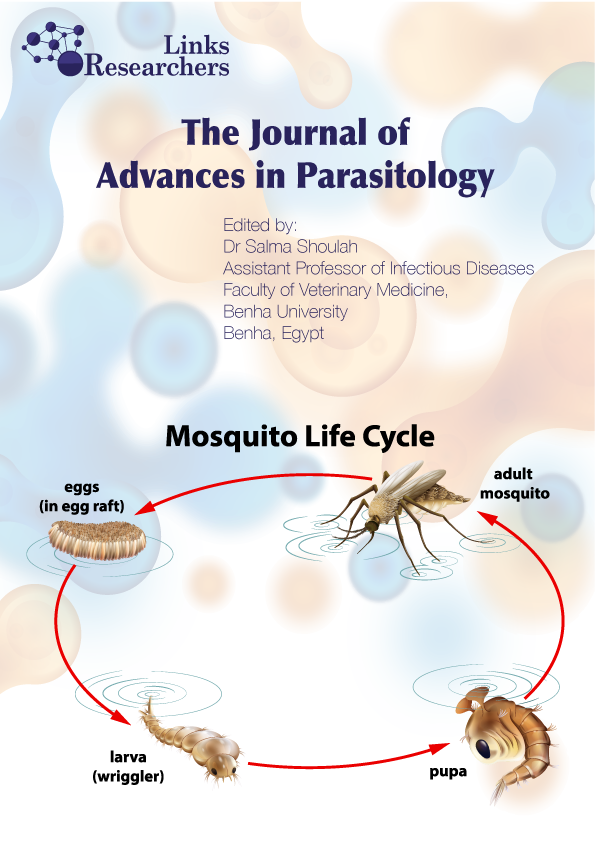Intestinal Protozoan Infections in COVID-19 Patients and Isolation of Cryptosporidium parvum var 1. from Recurrent COVID-19 Patients
Intestinal Protozoan Infections in COVID-19 Patients and Isolation of Cryptosporidium parvum var 1. from Recurrent COVID-19 Patients
Fadime Eroglu1*, Altan Akineden2, Cemal Cicek3, Selcuk Turkel2
ABSTRACT
Intestinal protozoans can be activated due to the weakening of the immune system and cause diagnostic difficulties and death of patients due to symptoms overlapping with COVID-19 disease. It was aimed to investigate the distribution of intestinal protozoan infections in COVID-19 patients and the relationship between these protozoans with clinical symptoms of COVID-19 disease. COVID-19 patients included in the study were classified according to their clinical symptoms as mild, moderate and severe clinical symptoms. ELISA tests were used to determine the CD4+T and CD8+T cells values of 148 COVID-19 patients. Microscopy, ELISA, PCR, real-time PCR and DNA sequence analyses were used to identify intestinal protozoan such as Blastocystis spp., C. parvum, E. histolytica and G. duodenalis. While intestinal protozoans were detected 22.3% (33/148) of COVID-19 patients, intestinal protozoans were not detected 77.7% (115/148) in this study. Blastocystis spp. was frequently detected 39.4% (13/33) followed by C. parvum 27.3% (9/33) then G. duodenalis 21.2% (7/33) and E. histolytica 12.1% (4/33) among COVID-19 patients. While all of these intestinal protozoans were detected in COVID-19 patients with severe clinical symptoms, Blastocystis spp. and G. duodenalis were detected in COVID-19 patients with moderate clinical symptoms. However, only Blastocystis spp. was detected in COVID-19 patients with mild clinical symptoms. In addition, the genetic distance value of C. parvum var 1 isolated from recurrent COVID-19 patients in the study was found to be between 0.05 (27/517) and 0.07 (37/310) in 120 bp-200 bp nucleotide. Our study shows that in addition to diseases such as diabetes and hypertension, intestinal protozoan infections can be a comorbidity with COVID-19 disease and increase the mortality rate of COVID-19 disease. In addition, our study shows that C. parvum var 1 may be the cause in recurrent COVID-19 disease. Therefore, it is useful to consider intestinal protozoan infections in the follow-up and treatment processes of COVID-19 patients.
To share on other social networks, click on any share button. What are these?





